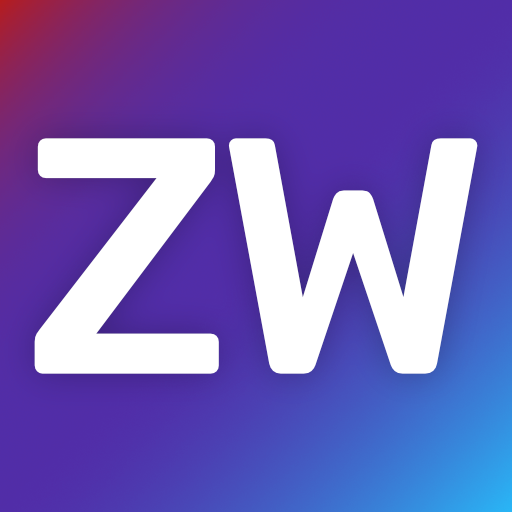The two messages have a different font and the third one somehow has more JPEG than the rest of the image
I think this is peak internet
*Exasperatedly pushes glasses up nose
Technically, it’s the whole background that has massive JPEG fragmentation, while the text is clearly two new layers with the bubbles paint-bucketed to match.

… since you said it in such a confident tone of voice, I am going to accept your explanation at face value!:-)
Look, you can’t just go around posting my photo on the internet without my permission.
Bold of a Redditor to presume that consent should matter! (/s in case anyone gets confused 🤔 - see the joke here is the presumption that someone speaking as such is a Redditor, which as we all realize is just about the worst insult that someone can be called by:-P)
And the bubbles have different shades of turquoise.
I think that’s just a gradient that spans all bubbles
As if anyone calling it
GNU+Linuxwould need to askThey should call it GNULinux instead
ᶫGͥNⷫUͧ+ͯKDE
Why you like GNULinux so much?
obviously fake. in reality no one asks and the conversation just starts with the voice message
Once again reminded of the amount of shit I get for not running windows and therefore not being able to play specific games. It’s ok, I get to give my friends shit when their computers have trouble booting.
With Proton and SteamOS, that list is becoming much smaller. I mostly rag on Mac these days as they now get the least support. Due to Apple charging devs to publish on the platform, they get less support, fewer updates and inflexible hardware. For example, I have someone in a group BG3 playthrough that has build compatibility broken all the time when patches come out for windows/proton.
Yeah, recently I’ve run into 1 game I’ve wanted to play that I just couldn’t (Valorant so probably a better outcome lol) and maybe 2 that had any sort of issue.
If you’re mainly into competitive games it’s still rough, but otherwise it’s honestly smoother than my friends on Windows often.
Definitely me, despite of and because I have used so many other unixes.
What are main things you’ve found that BSDs lack to make you prefer GNU+Linux? What are things from the BSD world you wish that GNU+Linux had?
BSD is a solid second choice in my experience. For a while I was considering using it as my primary platform, but in the last 10 years all i’ve done at work is linux, so that tipped me into linux. I haven’t used BSD in a long time though, so my answers about what BSD has that linux does not have are outdated, as most of the things I loved on BSD are now found in some form on linux. Though I do love some of the CLI tools like
diskutil. In general though, I’ve always found the GNU core utils and the tooling in linux that follows the same patterns to be really user friendly. It also drives me crazy that common tools like awk, sed, date, etc. are inconsistent between BSD and GNU, and I prefer the GNU syntaxes. (Yes, you can install GNU core utils on BSD and other platforms, but that’s nonstandard, and why would I do that for daily driving when I can choose a platform that uses the GNU toolchain as the standard?)Like @kata1yst@sh.itjust.works said, BSD brought a lot to the table in the last 20 years, zfs being a big one. FreeBSD 8 and 9 were the last BSDs I ran, and zfs was a big part of that. Once we got zfs on linux, I went back to full linux.
dtracewas also a huge one, and giving that up was hard, but now linux hasstrace.I’m just so over AIX, HPUX, and Solaris. I’m glad I got experience with them and less so a few others like irix and sys-v. Working with Sun hardware was particularly eye opening, like being able to hot swap processors and memory, things I had never imagined. But since about 2012 I have deliberately steered my career away from all unixes except linux, and waaaaaay away from anything windows related, going so far as to take everything windows related off my resumé.
Different caller, same question.
The BSDs I’ve used are extremely well documented and cohesive. No basic tools or functions are missing and everything works very simply and together as a whole. The tooling they put forward in the 2000s like DTrace, ZFS, jails, bhyve, were simply unmatched for their capabilities at the time. Having all those tools on a simple and fast OS at the time felt like living in the future.
At the same time, BSD is severely lacking in gaming, graphics performance, compatibility with modern ecosystems, ease of use for less technical users, and generally seems to have stagnated in the last 10-15 or so years. Some chalk that up to leadership, some to the license / corporate interests largely moving to Linux, who knows. But these days I use Linux and while I miss the halcyon days of BSD, I wouldn’t switch back.
the audio prob went as "I’d just like to interject for a moment. What you’re refering to as Linux, is in fact, GNU/Linux, or as I’ve recently taken to calling it, GNU plus Linux. Linux is not an operating system unto itself, but rather another free component of a fully functioning GNU system made useful by the GNU corelibs, shell utilities and vital system components comprising a full OS as defined by POSIX.
Many computer users run a modified version of the GNU system every day, without realizing it. Through a peculiar turn of events, the version of GNU which is widely used today is often called Linux, and many of its users are not aware that it is basically the GNU system, developed by the GNU Project.
There really is a Linux, and these people are using it, but it is just a part of the system they use. Linux is the kernel: the program in the system that allocates the machine’s resources to the other programs that you run. The kernel is an essential part of an operating system, but useless by itself; it can only function in the context of a complete operating system. Linux is normally used in combination with the GNU operating system: the whole system is basically GNU with Linux added, or GNU/Linux. All the so-called Linux distributions are really distributions of GNU/Linux!"






